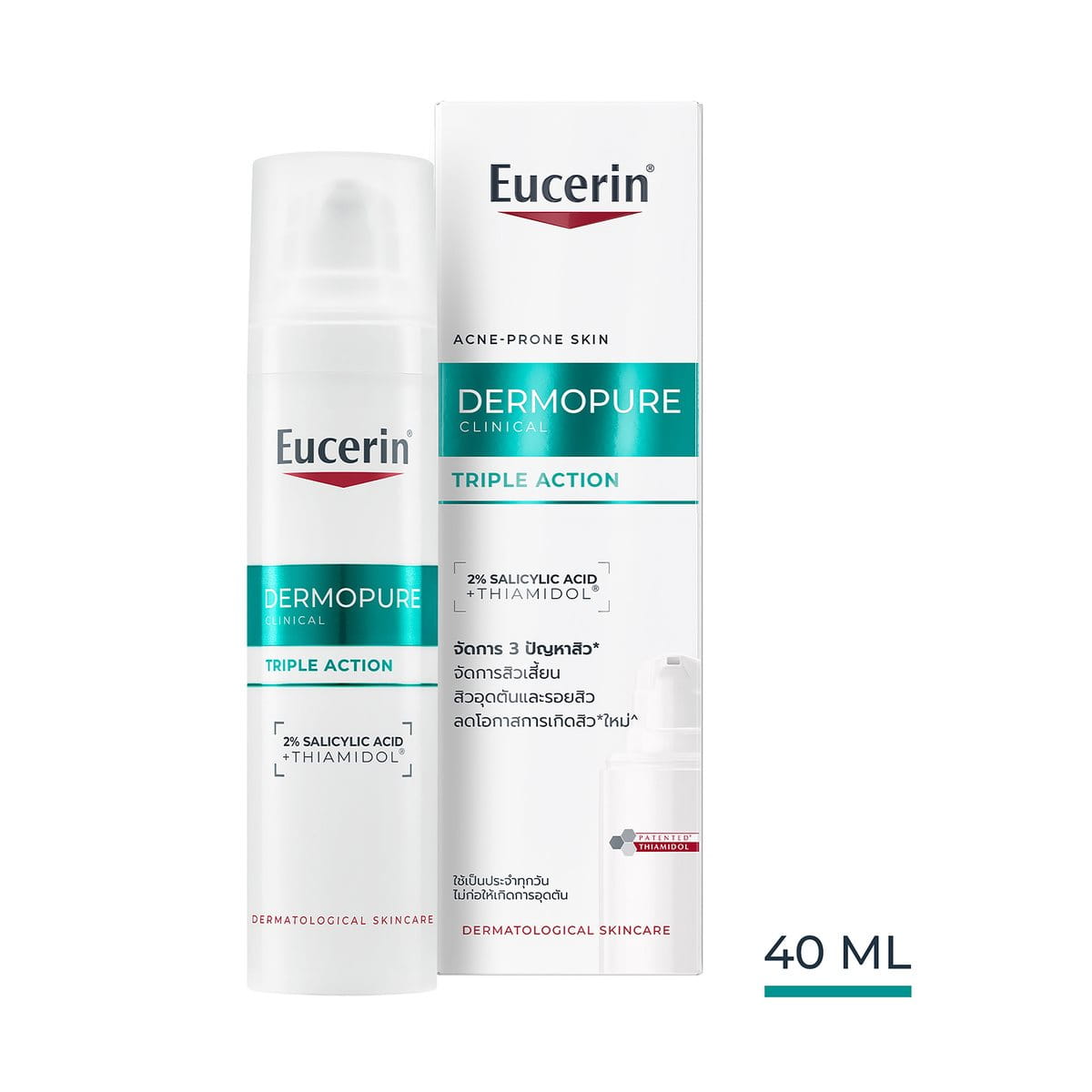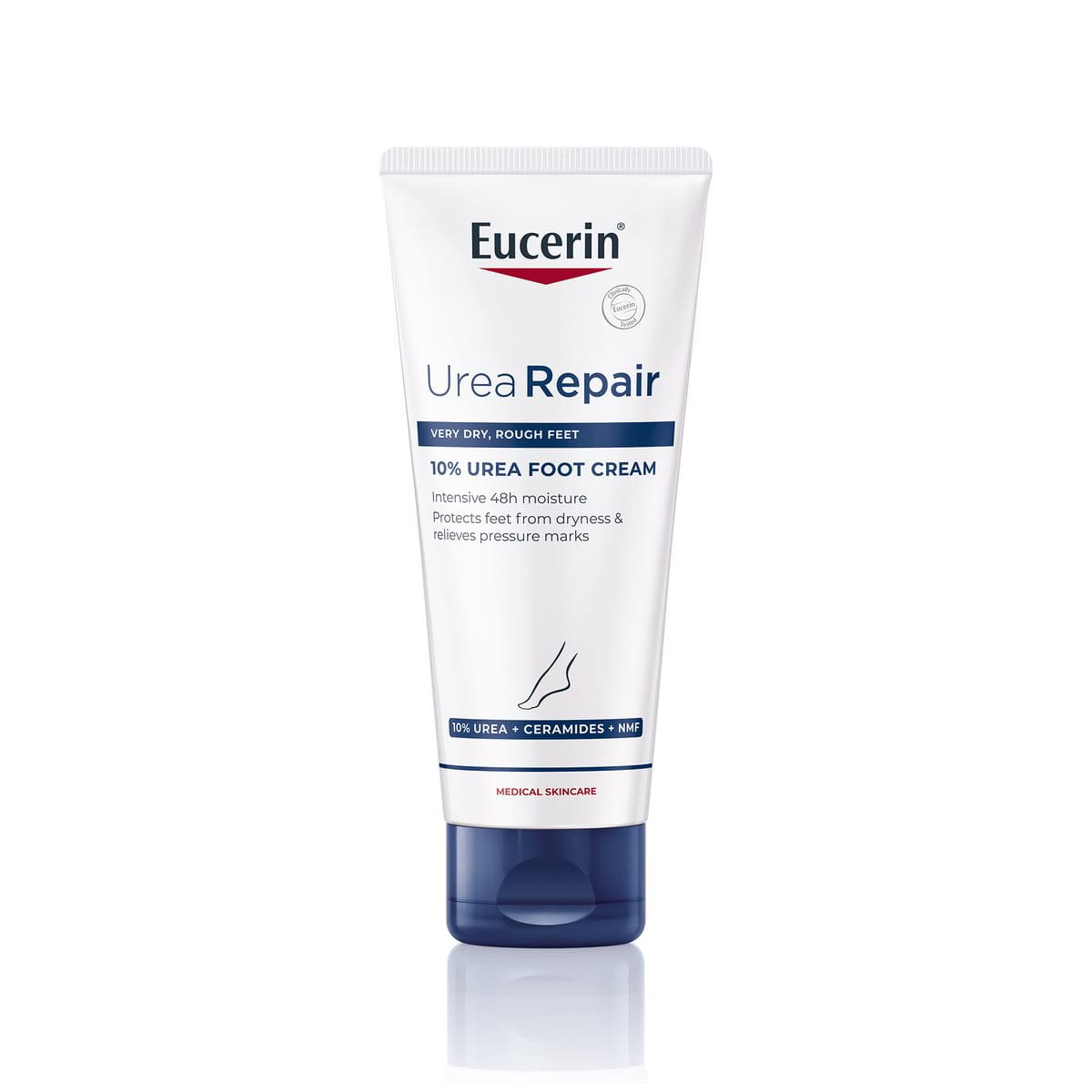The condition and appearance of our skin is key to our overall well being. When skin is in good condition it works hard to protect our bodies from environmental stressors such as irritants, allergens and microbes, regulates temperature and looks and feels smooth, calm, well hydrated and even in color. There are many factors – both internal and external – that affect skin condition and influence how it looks and feels. Some factors we cannot influence, but many we can. Careful skincare can protect skin and keep it looking younger for longer.
What are the internal factors that affect skin?
The internal (endogenous) factors that influence skin include genetics, hormones and specific conditions such as diabetes.
Internal factors that affect skin: genetics
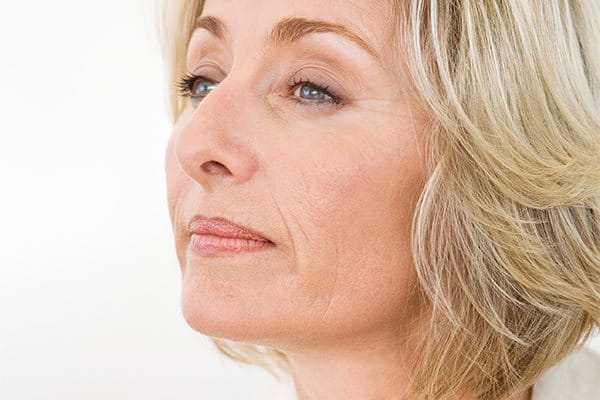
Genetics and biological skin aging
Genetics also determine the biological aging of skin which is characterized by:
- A decline in cell regeneration and renewal.
- Reduced sebaceous and sweat gland secretions.
- Degeneration of the connective tissue so that skin is less able to bind in water and loses firmness.
- Degeneration of elastic fibers that results in reduced skin elasticity.
Biological skin aging should not be confused with premature skin aging which is caused by external factors such as the sun and can be influenced.

A predisposition to skin conditions such as Atopic Dermatitis, Psoriasis and Ichthyosis is also decided by genetics. For example, those born with a genetic Filaggrin (a protein found in skin) deficiency have skin with a weaker barrier function and are prone to sensitive skin and Atopic Dermatitis. With such a predisposition, skin can be triggered more easily by stress and exacerbated by external influences, so it’s important to have a proper skin care routine in place. Read more in dry skin and Atopic Dermatitis.
There are also some diseases – such as diabetes and kidney disorders – that can impact on skin condition.
Internal factors that affect skin: hormones
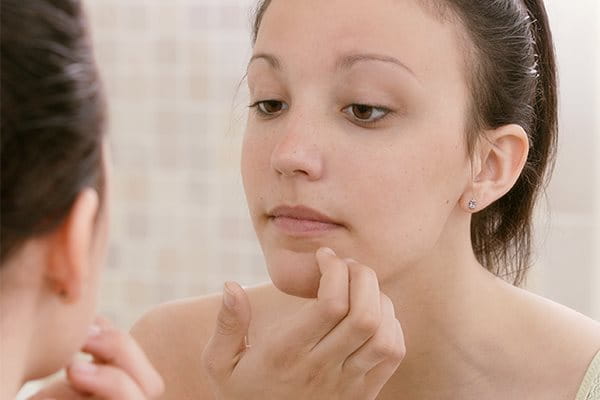

Hormones, and changes in their levels, can have a significant impact on skin:
- Hormonal changes can trigger the acne of puberty.
- During pregnancy, hormones can encourage the increased production of melanin and a form of hyperpigmentation known as melasma.
- Female estrogen levels decline as part of the biological aging process and especially after the menopause. Estrogen has a beneficial effect on the moisture balance of skin and its decline leads to structural changes and the age-related atrophy of skin.
What are the external, environmental factors that affect skin?
There are many external (exogenous) factors that influence skin condition. When skin’s natural balance is compromised, it is less able to work as a protective barrier and prone to sensitivity. The external factors that influence skin health are determined by the environment around us, our overall health and the lifestyle choices we make.
External factors that affect skin: climate

The weather can have a significant impact on skin condition:
Sunlight
Sunlight in moderation is good our overall well being, but too much sun can damage skin. The sun’s rays affect skin in different ways:
- UVB rays are responsible for sunburn. HEV Light has not been associated with sunburn.
- UVB rays and, to a lesser extent, UVA rays have been linked to DNA damage which can cause skin cancer. HEV Light is not associated with skin cancer.
- Both UVA rays and HEV Light can cause skin to age prematurely (photoage)
- Sun allergies are mainly triggered by UVA rays but can also be provoked by UVB.
- UVA, UVB and HEV Light rays can induce hyperpigmentation and may contribute to conditions such as age spots (also known as sun spots) and melasma.
You can read more about the difference between UVA and UVB rays in ‘How UVA, UVB and HEV Light rays affect skin, and find out how to look after your skin in How to protect skin in the sun?

Temperature
Extreme temperatures, and the speed of change between them, impact on skin skin.
In cold conditions skin reacts by narrowing the blood vessels to protect the body from losing too much heat. Sustained cold temperatures reduce sebaceous gland secretion and cause skin to dry out. Read more in dry skin.
In hot and humid conditions (for example tropical countries or a sauna) sweat glands produce more sweat, leaving the skin moist and shiny and, in some cases, acne prone skin. Low humidity, as found in aeroplane cabins and even caused by central heating, can cause skin to become dehydrated and lead to increased sensitivity.
Some skin conditions, for example Rosacea, can also be triggered by hot temperatures. This is one of the reasons why it is recommended to use warm rather than hot water for facial cleansing, hand washing and bathing.
External factors that affect skin: inappropriate skincare and chemicals
Harsh skincare products, an inappropriate routine and exposure to certain chemicals in the workplace can stress skin:
Aggressive products
Skin is naturally mildly acidic, with a pH of between 4.7 and 5.75. Aggressive cleansers and moisturising products with an alkaline pH overtax skin’s natural neutralising capability, damage cell structure and impair the barrier function of the outermost layer of the epidermis. As a result, skin can dry out and become sensitive or even hypersensitive.
When skin is sensitive it is susceptible to skin infections and flare-ups of diseases such as Atopic Dermatitis or Rosacea. Sensitive skin (which is characterised by a weakened protective barrier) and hypersensitive skin (which additionally has hyperactive nerve fibres) are both particularly prone to the drying and damaging effects of harsh products. For those who suffer with acne prone skin, Eucerin have an acne solution under the range of ProACNE Solution.
Harsh skincare products, an inappropriate routine and exposure to certain chemicals in the workplace can stress skin:
Aggressive products
Skin is naturally mildly acidic, with a pH of between 4.7 and 5.75. Aggressive cleansers and moisturising products with an alkaline pH overtax skin’s natural neutralising capability, damage cell structure and impair the barrier function of the outermost layer of the epidermis. As a result, skin can dry out and become sensitive or even hypersensitive.
When skin is sensitive it is susceptible to skin infections and flare-ups of diseases such as Atopic Dermatitis or Rosacea. Sensitive skin (which is characterised by a weakened protective barrier) and hypersensitive skin (which additionally has hyperactive nerve fibres) are both particularly prone to the drying and damaging effects of harsh products. For those who suffer with acne prone skin, Eucerin have an acne solution under the range of ProACNE Solution.
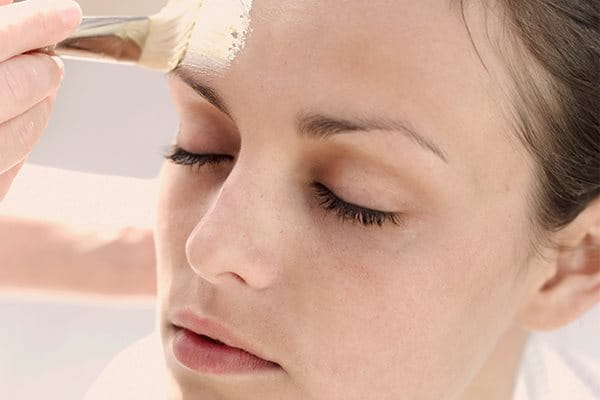
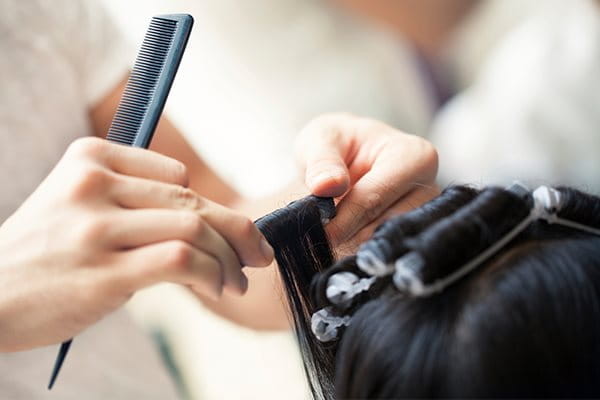
Certain chemical peels can have a similar affect and it is important to consult a dermatologist to check that a particular procedure is suitable for your skin.
Some people are particularly affected by aggressive products:
- Small children and the elderly: Young and old skin is less resistant because skin barrier function is either not yet fully developed or is on the decline. Read more in skin in different ages.
- Those exposed to chemicals in the workplace: Professionals such as hairdressers, masons and industrial workers are in regular contact with detergents, solvents, lacquers and paints - all substances that are harmful to the skin.
- Those with hypersensitive skin
Hypersensitive skin is characterised by a compromised skin barrier and hyper-reactive nerve fibres in the epidermis. Aggressive products can damage the skin barrier and trigger the underlying nerve fibres thereby causing unpleasant sensations.
Read more about how to care for body and facial skin and the importance of choosing the right skincare products.

Washing too frequently
Showering or bathing too frequently, for too long and with water that is too hot leads to a loss of skin’s natural moisturising factors (known as NMFs) and surface lipids. Skin dries out and becomes rough. The pH of healthy skin is mildly acidic, and frequent washing with tap water - that ranges from neutral to mildly alkaline - can impact on skin’s natural balance and impair its protective barrier function. Read more about caring for skin on the body and a daily skincare routine for the face.
External factors that affect skin: diet

Nutrition
A balanced diet will help to keep skin healthy. Research on the best foods for healthy skin is lean, but:
- Fruits, vegetables, whole grains and lean proteins (fish instead of meat)
- Antioxidant-rich foods seem to have protective benefits. These include: yellow and orange fruits and vegetables (e.g. carrots and apricots), blueberries, green leafy vegetables (e.g. spinach), tomatoes, peas, beans and lentils, fish rich in Omega oils and nuts.
Diets that exclude a particular food group and its nutritional value are not, on the whole, good for skin health. It is, however, advisable to limit the intake of sweets and dairy. It is also important to drink plenty of water, especially for elderly people.
There is no clear association between diet and the causes of acne.
External factors that affect skin: medication
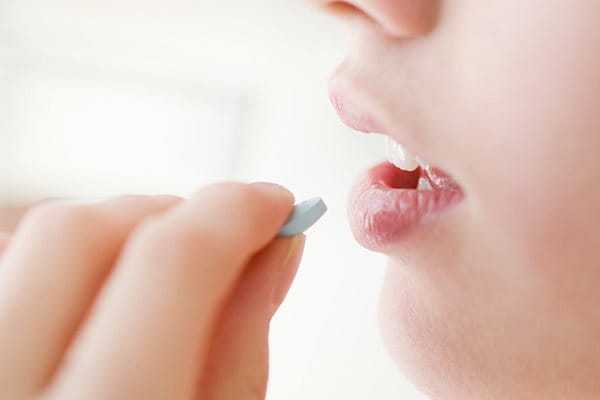
Certain medicines (e.g. chemotherapy, diuretics, laxatives and the lipid-lowering drugs sometimes taken to treat cardiovascular conditions) and medical procedures (e.g. radiotherapy and dialysis) can make skin more sensitive and prone to dryness.
External factors that affect skin: lifestyle
Healthy lifestyle choices can help to delay the natural ageing process and prevent skin problems:


Manage stress
Uncontrolled stress can make skin more sensitive and trigger problems including acne. Stress needs managing: reducing workload, making time for leisure activities and relaxation techniques can help.
Exercise
Regular exercise has a positive impact on skin health as well as overall fitness.
Sleep
A good night’s sleep gives cells a chance to regenerate and helps with skin renewal.
Stop smoking
Tobacco smoke is a major source of skin damaging free radicals. Smoking makes skin look older and contributes to wrinkles by:
- Narrowing the tiny blood vessels in the inner layers of skin. This decreases blood flow and depletes skin of oxygen and nutrients such as Vitamin A.
- Damaging collagen and elastin: the fibers that give skin its strength and elasticity.
Our brand values

We deliver a holistic dermo-cosmetic approach to protect your skin, keep it healthy and radiant.

For over 100 years, we have dedicated ourselves to researching and innovating in the field of skin science. We believe in creating active ingredients and soothing formulas with high tolerability that work to help you live your life better each day.
